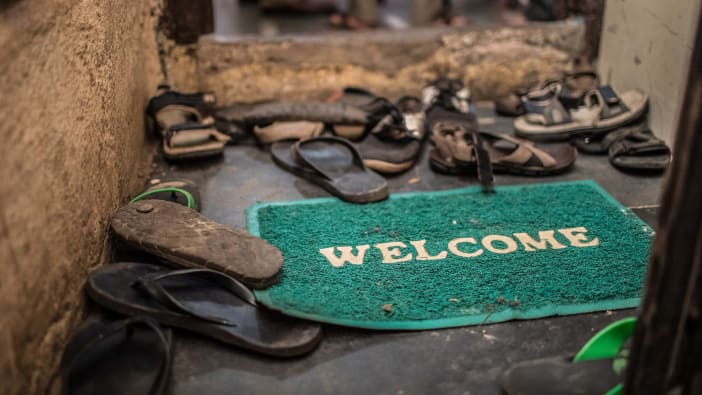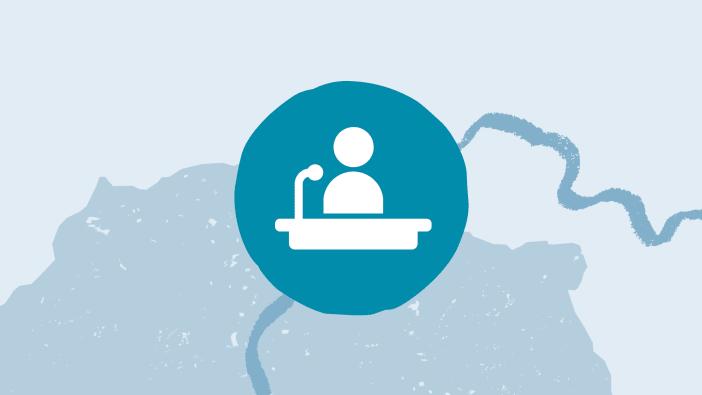Om Kheun forgives
Chrang Bak is a village built on the rubbish-strewn edge of the Bassac river near Phnom Penh, in Cambodia. Om Kheun is a local shopkeeper. Perhaps she is a better neighbour than businesswoman, because when poor neighbours come to buy food on credit, she cannot refuse. People from all over the neighbourhood come to her for advice as well as goods. She understands their problems because she is poor too.
Om Kheun later became a Christian. She read in the Bible that Jesus calls us to forgive those who have wronged us. With this new insight, she examined her heart and saw that there was something wrong there, something that was spoiling her relationships in the village. Over the years she had extended a lot of credit to other families. The amounts had grown so large that few of the poorest families would ever be able to repay her. And this created a double problem. Deep down she realised she felt angry and frustrated with those who owed her so much. She could be so much further ahead in life if they paid up! On the other hand, she realised that those poor families were also deeply ashamed of their debt and they now avoided her as much as possible. Om Kheun didn’t want to feel bitter, or to be avoided. And so, inspired by what she read in the Bible, she decided to solve the problem. Taking her record book in hand, she went from family to family and before their eyes drew a line through their debt, declaring it ‘forgiven’. At the stroke of a pen they were set free – and so now was she.
Although her life is often a struggle, Om Kheun has a sense of freedom. She has found something better than bitterness and hatred. She found a faith that transformed her despair into hope through the power of love and forgiveness.
The author, Kristin Jacks, is Country Director of Servants to Asia’s Urban Poor, Cambodia.
Website: www.servantsasia.org
Choosing to forgive
Lesley Bilinda is a community health worker who spent several years working for Tearfund in Rwanda. She was visiting Kenya when the 1994 genocide began, but her Rwandan husband Charles, a secondary school English teacher, was among those killed during the violence.
Ten years later, Lesley went back to Rwanda to try to find out the truth of what happened to her husband. She has felt the ‘survivor’s guilt’, wishing that she could have been with her friends and family in the time of trouble. She has also faced a constant internal struggle between anger at what has happened, and God’s challenge to forgive. ‘I thought long and hard about forgiving those who had been responsible for murdering him. Was it possible to forgive someone without knowing who they were? But I felt I had to try to forgive, for my sake if nothing else. Deep inside I was very angry and bitter over what had happened and I knew that in time, if unchecked, it could destroy me. As I see it, personal forgiveness does not mean that a person does not face a just punishment for their crimes. Justice still has to be upheld and seen to be done. But on an individual level, forgiveness allows both parties to move on.’
In the end, she did not find out for sure how her husband died. However, she did find one of the people who were responsible for the death of her close friend Anatolie. He has admitted his actions and Lesley forgave him. It is not an easy decision, as Lesley says, ‘Sometimes I don’t feel like forgiving, but it’s a choice I have made – and continue to make. This doesn’t mean to say I have forgotten. How easy it would be to nurse the bitterness, but I choose not to. I choose to forgive – again, and again, and again. As long as is necessary, and as long as God gives me the courage to do so.’
Lesley Bilinda’s story is told in her book, With What Remains (Hodder and Stoughton, 2006)









